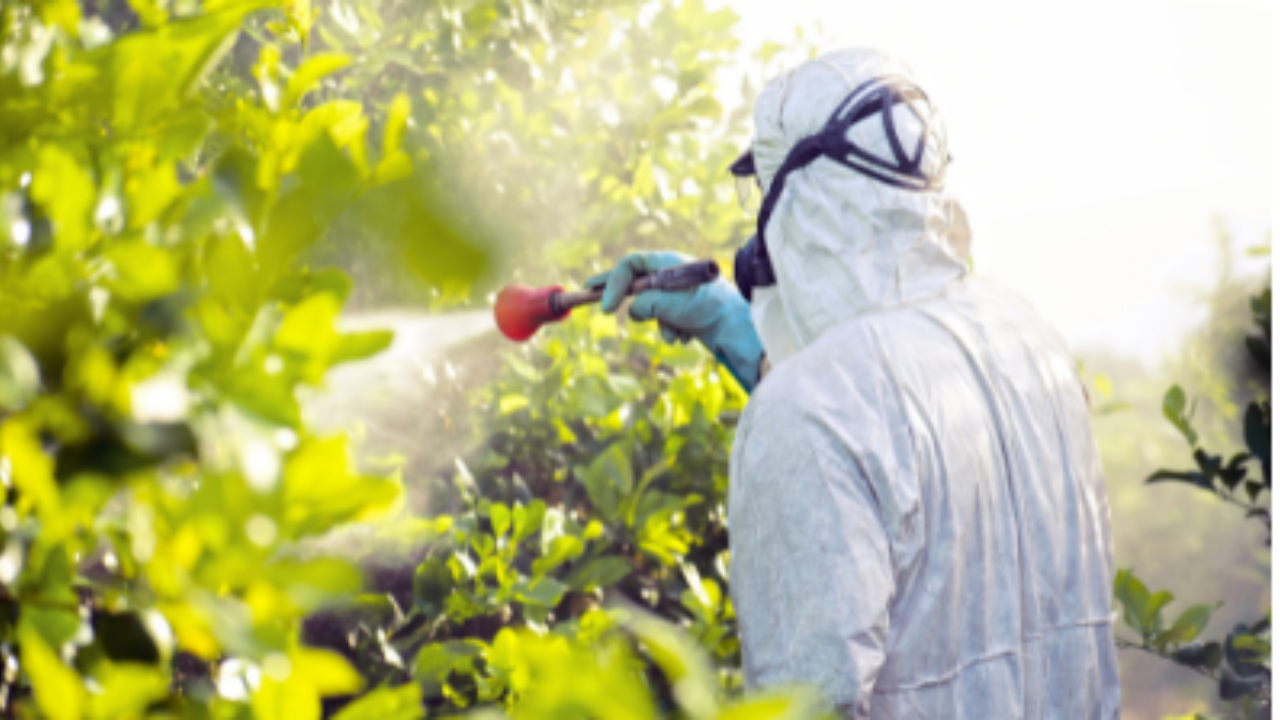
The Link Between Cancer & Environmental Toxins
Mar 10, 2023Environmental toxins are everywhere. They’re in the food and water we consume; the air we breathe; the personal care products we use each day; and the environments in which we live, work, shop, and play. And what’s most terrifying is that many of these environmental toxins are known carcinogens, meaning they’ve been linked to the development of certain types of cancer — including colorectal cancer and other potentially preventable cancers.
Some of the more widely recognized carcinogens in our environments include ultraviolet (UV) rays, asbestos, tobacco, soot, and radon — though there are many other known and probable cancer-causing toxins hiding in our food, soil, drinking water, homes, air, and personal care products. Several of these known carcinogens include:
- Acetaldehyde (or ethanol).
- Aflatoxins.
- Benzene.
- Butylated hydroxyanisole (BHA).
- Bisphenols: bisphenol A (BPA), bisphenol F (BPF), and bisphenol S (BPS).
- Heavy metals: cadmium, arsenic, mercury, and lead.
- Diethylstilbestrol (DES).
- Erionite.
- Formaldehyde.
- Fragrances.
- Lindane.
- M- and o-phenylenediamine.
- Mineral oils.
- Parabens.
- Plutonium.
- Per- and polyfluoroalkyl substances (PFAS).
- Persistent organic pollutants (POPs): polychlorinated biphenyls (PCBs), DDT, glyphosate, and chlorpyrifos.
- Petroleum distillates.
- Phthalates.
- Polyethylene glycol (PEGs).
- Processed meats.
- Trichloroethylene (TCE).
- Vinyl chloride.
- Wood dust.
Common sources of carcinogens include industrial chemicals, solvents, commercial and consumer products (such as furniture, cookware, and plastics), pesticides, heavy metals, and combustion by-products. These carcinogens are present in our homes, workplaces, water, indoor and outdoor air, soil, and food supply — making it difficult to avoid them completely.
Formaldehyde, for instance, can be found in many commonly used hair dyes, paints, soaps, glues, and other household items. Even using a gas stove releases formaldehyde and other carcinogens like benzene into the air!
Numerous other environmental toxins are probable carcinogens, meaning they’re probably associated with an increased cancer risk. Several of these probable carcinogens include hot beverages and charred foods, acrylamide, biomass fuel, dimethylcarbamoyl chloride, dimethyl sulfate, glycidol, hydrazine, ochratoxin A, polybrominated biphenyls (PBBs), tetrabromobisphenol A, and vinyl fluoride. Again, the list goes on.
With that being said, exposure to these carcinogens isn’t a guarantee that we’ll one day develop cancer. Environmental toxins have the potential to damage our DNA and increase our risk of developing cancer, but many other factors also come into play! Our genetics, diet, lifestyle, and carcinogen exposure type and duration are just a few of them.
This means we can reduce our cancer risk and improve cancer treatment outcomes by limiting our exposure to carcinogens through the dietary and lifestyle choices we make each day. In fact, anywhere from 30 to 50 percent of cancers may be prevented by avoiding carcinogens such as processed meats, alcohol, tobacco, and red meat (a probable carcinogen) — and colorectal cancer is one of them.
Eating just one 50-gram portion of processed meat a day (e.g. hot dogs, sausages, bacon, and deli meat) has been shown to increase one’s colorectal cancer risk by 18 percent, according to the International Agency for Research on Cancer (IARC). Red meat, on the other hand, is a probable carcinogen and a major reason why I recommend eating a plant-rich diet!
What’s more, the Environmental Working Group (EWG) has linked several other carcinogens to an increased risk of developing colorectal cancer. These include PCBs, bromoform (a combustion by-product), nitrates and nitrites, and industrial chemicals such as asbestos.
Exposures to carcinogens such as arsenic, coal tar, ethylene oxide, soot, and thorium are also associated with an increased risk of gastrointestinal cancers, according to the National Cancer Institute at the National Institutes of Health (NIH).
So in honor of Colorectal Cancer Awareness Month, here are a few of the things you can do to limit your exposure to many known and probable cancer-causing toxins.
When shopping for personal care products:
- Choose non-toxic products for your body, hair, face, and nails (avoid products containing phthalates, fragrances, BHAs, PEGs, petroleum distillates, and parabens).
- Avoid hair dyes containing m- and o-phenylenediamines.
- Refer to the EWG’s Skin Deep® Database before purchasing products.
At home:
- Filter your household air and drinking water.
- Avoid cigarettes, e-cigarettes, and cigarette smoke.
- Shield your skin from harmful UV rays.
- Choose non-toxic products for your home, office, and vehicles.
- Clean with non-toxic products.
In the kitchen:
- Eat a clean, anti-cancer diet that boosts immunity and supports your body’s ability to detoxify.
- Look for products that are third-party tested for heavy metals: protein powders, spirulina, chlorella, mushroom extracts, rice, coffee, chocolate, tea, cosmetics, turmeric.
- Choose organically grown produce whenever possible.
- Eliminate carcinogenic foods and beverages from your diet (e.g. processed meats and alcoholic beverages).
- Avoid dairy and seafood.
- Avoid eating and drinking from plastic water bottles and containers (instead, drink water out of glass or stainless steel containers, store food in glass containers, and avoid single-use plastic water bottles).
- Don't place hot foods or liquids in plastic blenders or cookware.
- Avoid “BPA-free” products.
- Avoid plastics and canned foods.
- Use your exhaust hood and open a window when cooking on a gas stove.
- Choose 100 percent ceramic; stainless steel; or cast-iron pans, baking sheets, and air fryers.
I’m a huge fan of Beautycounter cosmetics and skincare products, but you can also refer to the EWG’s Consumer Guides to learn more about choosing safer products for your home and body. The EWG is an excellent resource for finding information on filtering your household air and water, choosing non-toxic products, and making healthier food choices each day. My 7-Day Anti-Cancer Diet Kickstart is another great resource!
Your biggest cheerleader in health,
Hanna
Looking for 1:1 nutritional support as you navigate a cancer diagnosis or work to restore your health after treatment? Book a FREE phone consultation with me to learn how I can help!
References:
- https://www.ewg.org/research/pollution-people
- https://www.cancer.org/healthy/cancer-causes/general-info/known-and-probable-human-carcinogens.html
- https://www.cancer.gov/about-cancer/causes-prevention/risk/substances
- https://www.who.int/activities/preventing-cancer
https://www.iarc.who.int/wp-content/uploads/2018/07/pr240_E.pdf

